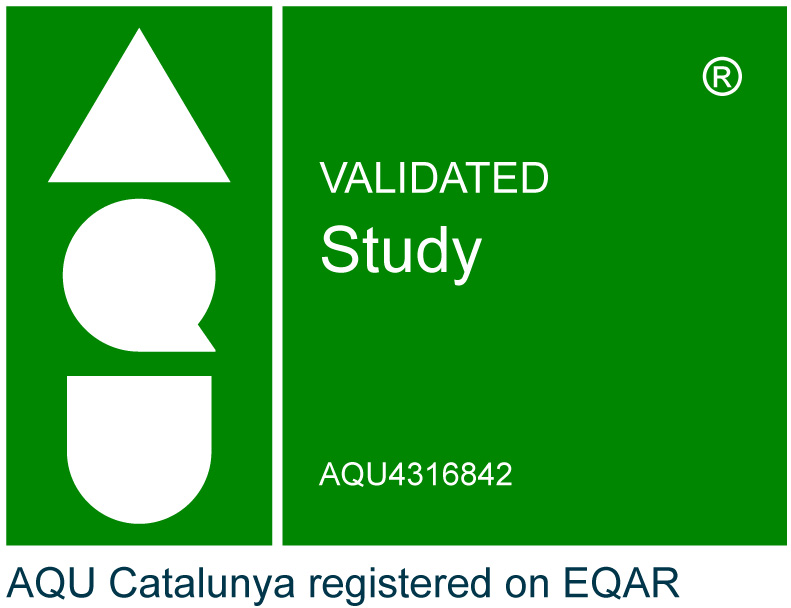University Master's Degree in Urgent and Emergency Care - Official
Reasons to study this master's degree
- This official master’s degree is recognised throughout the European Higher Education Area.
- The programme integrates teachers and students from different clinical disciplines such as medicine and nursing
- This is an official master's degree recognised in the European territory and accredited for accessing doctoral studies
- Simultaneous acquisition of additional specific accreditations:
- Certificates in Adult Advanced Life Support, issued by the Catalan Resuscitation Council and the European Resuscitation Council.
- Certificates in Paediatric Advanced Life Support, issued by the Catalan Resuscitation Council and the European Resuscitation Council.
- Certificate in Prehospital Trauma Life Support accredited by the NAEMT (National Association of Emergency Medical Technicians).
- Certificate in Tactical Emergency Casualty Care accredited by the NAEMT (National Association of Emergency Medical Technicians). - It allows medical and nursing professionals to acquire the necessary skills in the field of in-hospital and out-of-hospital emergency and urgent care.
In their own words
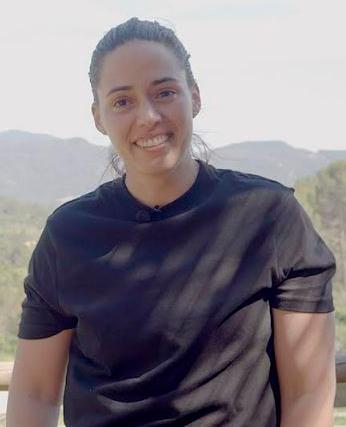
“This master’s degree trains you in an everyday environment that is unusual for those of us who are used to working in the hospital. It teaches you how to take care of a patient on your own, in a duo formed by doctor and nurse.”
Carol Centeno
Student on the Master's Degree in Urgent and Emergency Care
Job Opportunities
The knowledge and skills obtained from this master's degree will allow medicine and nursing graduates to expand their professional work into areas such as:
- Prehospital emergency medical services
- Hospital emergency services
- Intervention and rescue services
- Emergency primary care services
- Civil protection services
Presentation
The University Master's Degree in Urgent and Emergency Care has attracted professional experts from the field of urgent and emergency care to be part of its teaching team. It is taught in a face-to-face format using the most cutting-edge methods of healthcare education with work placements taking centre stage in the student’s learning.
Objectives
The main objective of the University Master's Degree in Urgent and Emergency Care is to train and equip qualified doctors and nurses to respond adequately, effectively and efficiently to the needs that arise in in-hospital and out-of-hospital urgent and emergency situations, mainly in terms of healthcare, but also in research and teaching.
The specific academic objectives are:
- To teach professionals working in the field of urgent and emergency care, both in hospital and out of hospital
- To convey the foundations of urgent and emergency healthcare and teach students how the major emergency medical services work, including their action protocols, resources and procedures
- To develop the skills needed to provide assistance to multiple-victim incidents, out-of-hospital births, and situations that require paediatric and neonatal resuscitation procedures
- To ensure students acquire knowledge of advanced resuscitation procedures in adult patients and of polytrauma patient care
- To enhance health professionals’ teaching and research abilities
Who is this course aimed at? Profile
The Master's degree is suitable for professionals who have a pre-EHEA undergraduate degree, a bachelor’s degree or diploma in nursing or medicine, who are looking to specialise in urgent care and in- and out-of-hospital emergencies.
Directors and coordinators
Dr. Jordi Castillo García
Director of the University Master's Degree in Urgent and Emergency Care. PhD in Health from UIC Barcelona.
Mr. Ramón Pedrosa Cebador
Coordinator of praticums and accredited ATLS and MVI courses. Doctoral candidate at UIC Barcelona.
Dr. Francisco Javier Jacob Rodríguez
Co-Director of the University Master's Degree in Urgent and Emergency Care.
Acreditació acadèmica
Màster Universitari en Urgències i Emergències Sanitàries per la Universitat Internacional de Catalunya.
Teachers
- ALFONSO ARIAS, Cristina
- ÁLVAREZ DÍAZ, Pedro
- BARBADILLO ANSORREGUI, Sandra María
- BATALLER BASSOLS, Adriana
- BLANCH MUR, Carles
- CARDONA PORTELA, Pedro
- CASTILLO GARCIA, Jordi
- CAYETANO PANIAGUA, Ladislao
- CLIMENT MORALES, Carmen María
- COLET MASEGOSA, Martí
- DE JUAN PARDO, María Ángeles
- DELAS ALOS, Bárbara
- GALLART FERNANDEZ-PUEBLA, Alberto
- GANGOLELLS SABATA, Alba
- GARCIA ARTEAGA, Elisabet
- GIRVENT VILARMAU, Marta
- GOÑI FUSTE, Blanca
- GONZÁLEZ DE MOLINA ORTIZ, Francisco Javier
- GONZÁLEZ MARRÓN, Adrián
- GUARDIOLA TEY, José Mª
- GUINDO SOLDEVILA, Jose
- JACOB RODRÍGUEZ, Francisco Javier
- JIMENEZ JIMENEZ, Sandra
- LIDÓN MOYANO, Cristina
- LÓPEZ LÓPEZ, Alejandro
- MARTÍN DELGADO, Leandra
- MARTÍNEZ JAIMEZ, Patricia
- MARTINEZ RUBIO, Antonio
- MARTÍN FERRERES, María Luisa
- MARTÍN SÁNCHEZ, Juan Carlos
- MONFORTE ROYO, Cristina
- MOTOS CABRERA, Jaime
- POZAS PEÑA, Joan
- QUINTILLA MARTINEZ, Jose Maria
- RAMÍREZ GEA, Jesús
- ROBLEDA FONT, Gemma
- RODRÍGUEZ HIGUERAS, Encarna
- ROSET RIGAT, Alejandro
- TAPIA MARTINEZ, Javier
- VALDES CASTIELLO, Andrea
- WENNBERG CAPELLADES, Laia
Internship
As part of the University Master's Degree in Urgent and Emergency Care at UIC Barcelona, external work placements give students the chance to fully apply the knowledge and skills they have acquired, in real circumstances, whilst under the supervision of a work placement tutor. These internships will take place during the months of Januaryto July.
They are undertaken as part of an individual programme in a network of healthcare centres and institutions specificallyselected for their care and research activity, and their potential for training professionals.
These rotations are performed in the following units and services:
- Intensive Care Unit (75h)
- Emergency Medical Service (75h)
- Anesthesia, Operating Room and Resuscitation Unit (75h)
- Extra Hospital Emergency Service (100h)
Whilst undertaking the external work placement, students will prepare a report and submit it upon completing the placement. This will contribute to the student's mark.
Work Placement agreements





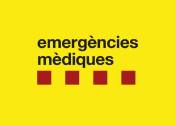


General regulations
Workshops
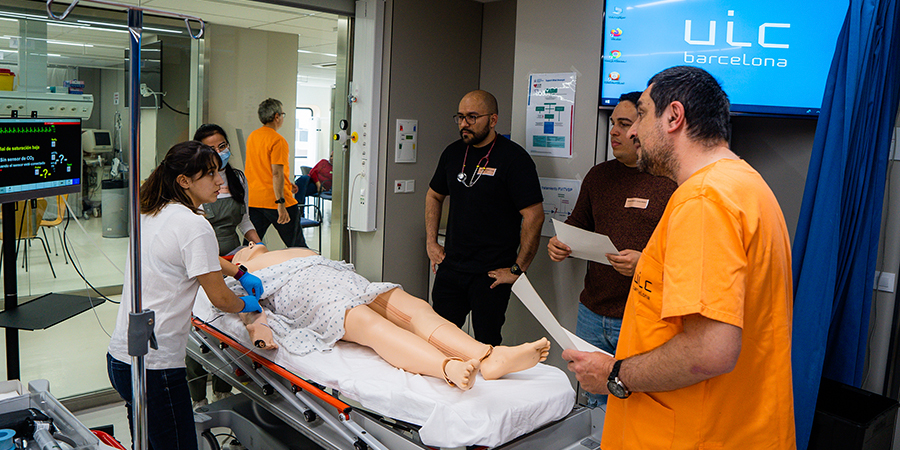
During the academic year, students will take part in several hands-on workshops in which they will put into practice everything they learn in the theory classes.
On the other hand, the master facilitates the simultaneous obtaining of additional specific accreditations:
- SVA - Adult Advanced Life Support: Course accredited by the Consell Català de Ressusitació and the European Resuscitation Councill. 45-hour course: 30 hours online and 15 hours of face-to-face practical workshops with high-fidelity simulation. The instructors are experts in the subject and active healthcare professionals. The clinical simulation laboratories are an ideal space for learning this course.
- SVAP - Pediatric and Neonatal Advanced Life Support: Course accredited by the Consell Català de Ressusitació and the European Resuscitation Council: 55 hours course: 30 hours online and 25 hours of face-to-face practical workshops with high fidelity simulation. The instructors are experts in the subject matter and active healthcare professionals. The clinical simulation labs are an ideal learning space for this course.
- PHTLS - Prehospital Trauma Life Support: Course accredited by the NEAMT (National Association of Emergency Medical Technicians) and endorsed by the American College of Surgeons. The workshop is distributed in mixed
methodologies: online part, master classes, workshops and simulation. Several simulations are performed at the end of the course to consolidate the learning obtained. - TECC - Tactical Emergency Casualty Care : NEAMT accredited course. Taught by experienced multi-casualty professionals. After several workshops, master classes and online work for five weeks, the exercise culminates with three simulations in which students have to manage and care for victims of various disasters.
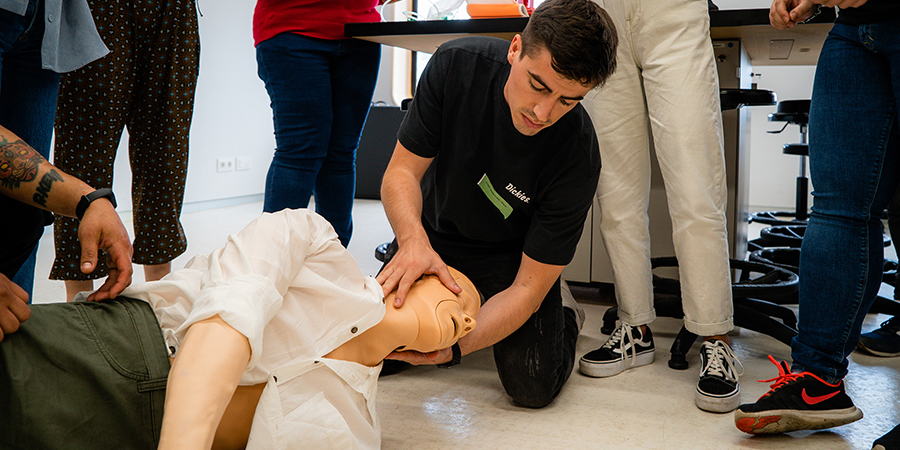
Prerequisites & admissions
Required documentation
Candidates wishing to apply for a place on the programme must provide the following documentation:
- Application form (common to all programmes) duly completed
- A statement of objectives written by the candidate and describing their personal motivations, as well as the professional and academic objectives that led them to apply for this Master's degree
- An academic record of university studies, if the candidate is applying from another university
- Curriculum vitae
- Attested photocopies of the applicant's official academic degree certificates
Admission criteria
The admissions procedure consists of a weighted assessment of the candidate’s professional and research record and a face-to-face interview with a member of the Academic Master’s Degree Committee.
In the event that demand exceeds the number of places available on the Master's degree, the admission criteria will also include:
- Candidate’s academic record mark
- Individual accreditation by the candidate’s managers at the workplace in which they are currently working in an urgent or emergency care department
Once the admission procedure is complete, the Information and Admissions Service, which is responsible for managing the entrance examinations, will notify each candidate of their results.
Access route
Anyone who fulfils the admission requirements and general prerequisites for accessing the degree programme may apply. The degree programmes with access to this master’s degree are: Holders of a pre-EHEA undergraduate degree, a bachelor’s degree or diploma in nursing or medicine who are looking to specialise in caring for patients who enter hospital through the Accident & Emergency Department, or caring for them in in- and out-of-hospital emergency situations.
Regulations for transfer
Information about regulations for transfer can be found by clicking on the following link.
Recognition
Reception and tutoring
Information about the welcome and advice provided by UIC Barcelona can be found here:
Grants & financial aid
The University doesn't offer grants for third cycle studies. In order to obtain financial aid, candidates must contact institutions outside UIC Barcelona.
Doctorate
LINE 1: PALLIATIVE CARE FOR END OF LIFE AND CHRONIC ILLNESS. COMMUNICATION WITH PATIENTS
Objectives:
- Study of the biological and psychological factors that lead patients to want to die.
- Develop models of diagnosis and of accompaniment and treatment, for the patients and for their family.
- Develop learning models to train professionals.
Objectives:
- Health Education, aimed at improving knowledge of health and its population factors and training future health professionals as educators in health.
- Health Science Education, aimed at improving the training of future health professionals to achieve professional excellence in both their technical competencies and in their interpersonal, self-management, prioritisation, decision-making and inter-professional skills.
LINE 3: TRANSLATIONAL, CLINICAL AND APPLIED RESEARCH
Objectives:
- Apply in clinical practice the biomedical, basic sciences and/or experimental knowledge acquired in the laboratory, with the aim of improving health care.
- Understand the mechanisms of disease, as well as the demographic, epidemiologic, and/or socio-economic factors that influence it, in addition to its clinical characteristics, diagnostic procedures and/or therapeutic, prognostic factors and/or preventive measures.
- Analyse best practices in terms of activity, quality, safety, efficiency and satisfaction, at care, professional, organisational, institutional levels and/or as regards the health system itself, as well as in the field of public health and/or health policies.
LINE 4: INFECTIOUS DISEASES: PREVENTION, DIAGNOSIS AND TREATMENT
Objectives:
- Study scientific progress and establish medical improvements in the prevention, diagnosis, and treatment of infectious diseases.
- Study the interrelationship and translation of the various infectious diseases.
- Improve the general patient health, reducing the risk of infections and inflammatory diseases.
Final master's degree project
Final Master’s Degree Projects (TFM) are carried out individually and are, fundamentally, self-led projects that each student will complete under the guidance of a tutor who will help to motivate and facilitate the student’s learning process.
The number of credits allocated to the TFM is 6 ECTS, equivalent to 132 hours of study/student, during which time all the planned tasks including data and preliminary information research, scheduling, planning and structuring of content, organisation and completion will be carried out.
The main objective of the TFM is for the student to demonstrate the knowledge they have acquired during the university master's degree terms of methodology, scheduling, structure, planning, organisation, and communication of the proposed work methods and of the tasks necessary for their implementation.
Students must use the TFM to demonstrate that they are able to describe and analyse the problem under investigation based on previous studies and scientific background by planning research objectives and design, appropriate applications and the development of the scientific method, as well as foreseeing and applying the methodology for the evaluation of the results.
The Academic Master’s Degree Committee is tasked with:
- Assigning the student a tutor based on the subject and number of students.
- Proposing juries and appointing the members.
- Designing the mark schemes and agreeing on assessment criteria.
- Organising the Final Master’s Degree Project defence proposal.
- Ensuring the competence-based assessment process and students’ acquisition of competences.
Alumni Ambassadors
Meet our Alumni Ambassadors
Alumni Ambassadors are former students who have volunteered to talk about their experience at UIC Barcelona. With them you can address any doubts about your chosen studies, the university and the student experience.
